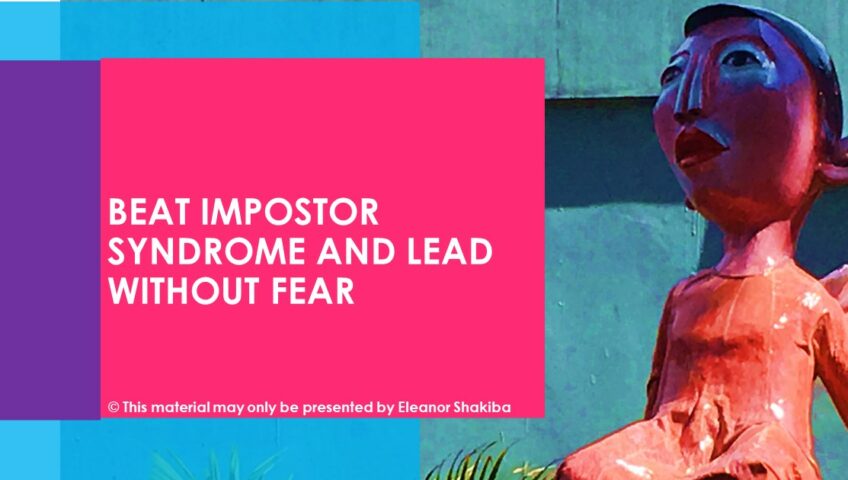Everyone has moments where they feel inadequate. Yet, most people try to hide those feelings under a mask of false confidence. This is called the imposter syndrome and it affects over 70% of the population. A recent article on the topic helps shed light on the causes of imposter syndrome and how to conquer it.
So, what is the key to beating imposter syndrome? First, you need to understand where it comes from. The term imposter syndrome was coined by clinical psychologists Dr. Pauline Clance and Dr. Suzanne Imes in 1978. Dr. Valerie Young expanded upon their research by identifying five types of impostors: the soloist, the perfectionist, the natural genius, the superman/woman, and the expert.
The perfectionist feels as if giving 99% isn’t enough. According to Dr. Young, perfectionists need to understand that perfectionism inhibits success and not everything deserves 100%. The expert feels that they always need to acquire more knowledge. Yet, there is no end to knowledge.
The natural genius assumes that confidence and intelligence are natural traits that you’re born with. They need to realise that nothing is fixed. The soloist only feels competent when they complete tasks without help. However, smart people seek help from those who know more. The superman/woman feels that they must excel at everything instead of slowing down.
All five types of impostors benefit from reframing, which is a common practice in neuro-linguistic programming (NLP). The best way to stop feeling like an impostor is to reframe your thoughts. The next time that you feel inadequate, stop, and imagine how someone with more confidence may feel in that same moment. You can distance yourself from your feelings and reframe them from someone else’s perspective.
Dr. Young offers an in-depth look at the reasons for feelings of inadequacy in the workplace. Read the original article here.
Imposter syndrome directly impacts your performance in the workplace. Instead of faking it until you make it, try admitting that you don’t have all the answers. You can say “no” and “I don’t know” occasionally. No one expects you to know everything.
I find that this is an especially important lesson for high achievers, leaders, and other professionals. Letting others know that you don’t know everything makes you more relatable. It can also go a long way toward boosting the confidence of subordinates.
According to Dr. Young, it’s also important to recognise that you can’t eliminate all feelings of inadequacy. Neuro-linguistic programming techniques provide a way to reframe your thinking. With practice, you can learn to normalise your feelings and stop holding yourself to unrealistic standards.
For those who want to act now, I recommend practicing saying “I don’t know.” Feel free to admit when you don’t have a solution. If you want additional tips on how to beat imposter syndrome, I’m ready to help. Take a moment to learn more about my one-to-one coaching and online courses at https://thinklearnsucceed.com.au.
